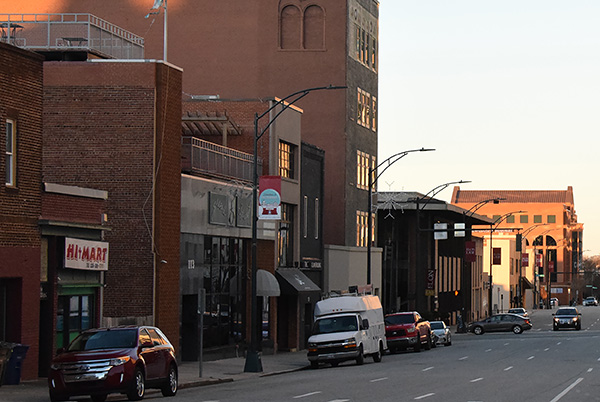Greensboro is about to find out if the City Council places as much value on requests from property owners and taxpayers as it does on the homeless and homeless organizers.
The Triad Real Estate and Building Industry Coalition (TREBIC) and other stakeholders have requested that the proposed “good repair” ordinance that would apply to all nonresidential buildings in the city be continued, so that TREBIC, property owners and others will have an opportunity to work out some of the issues they have with the proposed ordinance.
In the past, the City Council has had a policy of consulting stakeholders before an ordinance like this was written, but in this case the City Council had originally planned to pass the ordinance in April with no opportunity for public input, other than the required public hearing moments before the City Council voted. Since then the city has held two public forums, but if the city completely ignores the public input, then it might as well have passed the ordinance in April.
When representatives of the Homeless Union of Greensboro asked that the proposed panhandling ordinance be continued because they had problems with the ordinance as it was written, the Greensboro City Council continued the item for six months, hired an outside law firm to write a new ordinance and held five public hearings on the proposed ordinance, before finally passing a completely different ordinance than the one originally proposed.
Some of those involved in the real estate industry say that they are getting a lot of pushback from councilmembers on the request that the vote on the good repair ordinance be delayed. Councilmember Justin Outling had an op-ed in the News & Record on Sunday June 16 stating the Council should vote on the ordinance Tuesday, June 18. To do so would be to ignore the input from the public including those who will be most affected by the proposed new ordinance.
A letter from the Regulatory Affairs Director of TREBIC, Judy Stadler, to Mayor Nancy Vaughan asks for a continuance and lists in detail some of the concerns raised at the public discussions held on Thursday June, 6 and Friday June, 7. The letter notes some real issues that the stakeholders believe should be worked out before the ordinance is passed. Here’s one, in North Carolina new construction has to conform to the statewide North Carolina Building Code. The Good Repair ordinance holds buildings to a different standard the International Property Maintenance Code (IPMC). According to Stadler’s letter the North Carolina Building Code Council is moving away from the IPMC.
Two different building codes means new construction would not conform to the IPMC as the good repair ordinance requires but to the North Carolina Building Code, and a building permit to bring a building up to code also would not conform with the good repair ordinance which means property owners could be caught in a Catch-22 where they couldn’t get a building permit to do the work to repair the property to conform to the IPMC and the city’s good repair ordinance.
It would also present the interesting problem that a brand new building on the day it receives its final approval from the city might not comply with the 30 some pages of regulations in the IPMC and therefore not comply with the good repair ordinance.
A similar issue according to the letter is that currently buildings have to comply with the building code when they were built, not the current code. The good repair ordinance requires buildings to comply with the current IPMC which can be significantly different from the code when the building was constructed. The result would be that many otherwise serviceable buildings would be demolished because it would be cost prohibitive to bring them up to the current IPMC. Even if the initial complaint was noncompliance with five minor requirements, which include peeling paint and cracked plaster, the entire building would according to the ordinance have to comply with the IPMC.
The letter also notes that if the Good Repair ordinance had been in place at the time, the old Wachovia Building, which is now Center Pointe, would have been demolished and could not have been renovated to become one of the premier residential addresses in Greensboro.
At this point, it looks like the vote for a continuance could go either way, even though he city admits that it does not currently have enough inspectors to enforce the ordinance, so what’s the rush?


You ask, “what’s the rush?” They want to show us that they have power over us. That’s the rush.